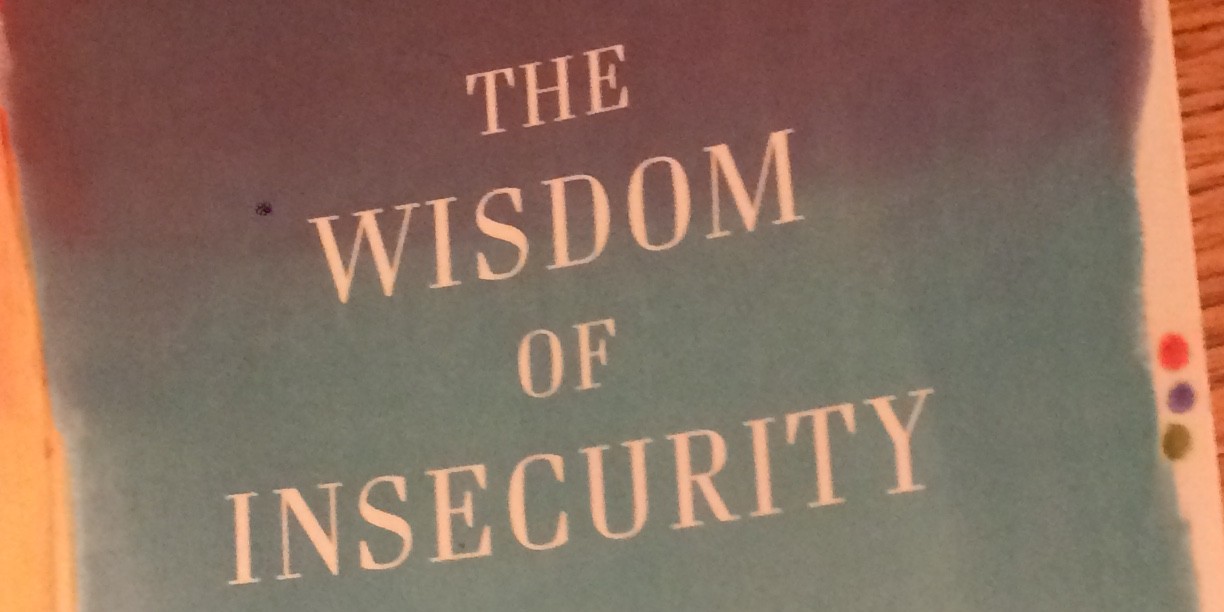
I'm going to keep these book reports short, but I want to do them to keep myself accountable. It's one thing to read for pleasure, and it's another to read for complete understanding while looking for ways to incorporate the author's message into your life. I don't know how well this will go over with you guys, but I think there will be some value to be gained along the way. Without further ado, my takeaways from Chapter 1- The Age of Anxiety.
Side note about the author- Watts read heavily in philosophy, religion, psychology, and science, as an Episcopal priest in the 1950's. I'd say he was a little ahead of his time. In 1951 he lost his job as a priest and his young wife in a divorce. He followed Buddhism (which is not a religion) and through his younger years was constantly searching to merge Eastern and Western philosophies. Now was his chance after his world seemingly pulled out from under his feet...
He cites religion and uses it to determine faith vs. belief, but he does so without criticizing. He asks tough questions but provides strong points based in fact. So what I'm saying is, you can't read this book unless you have an open mind otherwise you will get nothing out of it.
"By all outward appearances our life is a spark of light between one eternal darkness and another...Man, as a being of sense, wants his life to make sense, and he has found it hard to believe that it does so unless there is more than what he sees..."
Now seeing that I have chosen powerlifting as my singular hobby, I have basically given up a pain free, healthy, long life. So the above statement has always been in my mind, but reading it from a guy who wrote it 60 years ago strikes a different chord. I was never able to put words to it, but there it is...in a book that's 3x as old as I am.
"If science cannot prove there is no God, we can try to live and act on the bare chance that he may exist after all. There seems to be nothing to lose in such a gamble, for if death is the end, we shall never know that we have lost. [Otherwise the alternative] is to try grimly to face the fact that life is 'a tale told by an idiot,' and make of it what we can, letting science and technology serve us as well as they may in our journey from nothing to nothing."
A little depressing but he's setting up why people are happy, those that follow blindly, and why people are not happy, those who are neurotic and constantly questioning (that's me and why I'm reading this book).
"The common error of ordinary religious practice is to mistake the symbol for the reality, to look at the finger pointing the way and then to suck it for comfort rather than follow it."
So his distinction lies between FAITH and BELIEF.
"...Belief has come to mean a state of mind which is almost the opposite of faith. Belief, as I use the word here, is the insistence that the truth is what one would...wish it to be. The believer will open his mind to the truth on condition that it fits in with his preconceived ideas and wishes. Faith, on the other hand, is an unreserved opening of the mind to the truth, whatever it may turn out to be...Belief clings, faith lets go."
Here lies my issue- I struggle to let go, of anything. Bad decisions, bad relationships, you name it. And that is my ultimate goal in reading this book- Learn to let go, learn to live in the present, learn how to be happy.








